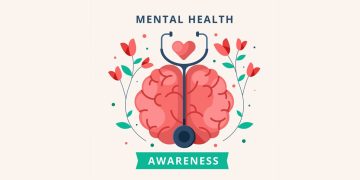In today’s fast-paced world, it’s more important than ever to prioritize our health and wellness. With the constant demands of work, family, and everyday life, taking care of ourselves often gets pushed to the wayside. However, investing in our health is crucial for maintaining vitality and overall well-being.
In this comprehensive guide, we will explore the key strategies to optimize your health and achieve peak vitality. From diet and exercise to stress management and self-care, we will cover all aspects of wellness to help you lead a thriving and fulfilling life.
Introduction to Optimal Health
Before diving into the specifics of how to optimize your health, it’s important to understand what exactly optimal health entails. Optimal health is not just the absence of disease, but rather a state of well-being where you are functioning at your best physically, mentally, and emotionally.
Achieving optimal health requires a holistic approach that addresses all aspects of your life, including your diet, exercise routine, sleep habits, stress levels, and social connections. By taking a comprehensive approach to wellness, you can experience increased energy, improved mood, better focus, and overall vitality.
Key Components of Optimal Health
1. Nutrition: A healthy diet is essential for optimal health. Focus on eating whole, nutrient-dense foods such as fruits, vegetables, lean proteins, whole grains, and healthy fats. Avoid processed foods, sugary drinks, and excessive amounts of salt and sugar.
2. Exercise: Regular physical activity is crucial for maintaining a healthy weight, reducing the risk of chronic diseases, and improving overall fitness. Aim for at least 150 minutes of moderate-intensity exercise each week, including a combination of cardio, strength training, and flexibility exercises.
3. Sleep: Getting an adequate amount of quality sleep is essential for optimal health. Aim for 7-9 hours of sleep each night, and establish a consistent sleep routine to improve the quality of your rest.
4. Stress Management: Chronic stress can negatively impact your health in numerous ways. Practice stress-reducing techniques such as mindfulness meditation, deep breathing exercises, yoga, or spending time in nature to help lower your stress levels.
5. Social Connections: Maintaining strong social connections is important for mental and emotional well-being. Make time for social activities, connect with friends and family regularly, and seek support when needed.
Tips for Optimizing Your Health and Vitality
Now that we’ve covered the key components of optimal health, let’s explore some practical tips for optimizing your health and vitality in everyday life.
1. Stay Hydrated: Drinking an adequate amount of water is essential for staying hydrated, supporting digestion, and maintaining overall health. Aim to drink at least 8-10 glasses of water each day, and more if you are active or in hot weather.
2. Prioritize Self-Care: Taking time for self-care is crucial for maintaining mental and emotional well-being. Make time for activities that bring you joy and relaxation, such as reading, taking a bath, going for a walk, or practicing a hobby.
3. Practice Mindful Eating: Paying attention to what and how you eat can have a significant impact on your health. Practice mindful eating by savoring each bite, eating slowly, and paying attention to your hunger and fullness cues.
4. Get Regular Check-Ups: Regular visits to your healthcare provider can help identify potential health issues early on and prevent future complications. Make sure to schedule annual physical exams, screenings, and vaccinations as recommended.
5. Limit Screen Time: Excessive screen time, whether from smartphones, computers, or TVs, can have negative effects on your health. Limit your screen time, especially before bedtime, to improve sleep quality and reduce eye strain.
6. Set Realistic Goals: When it comes to health and wellness, setting realistic and achievable goals is key to success. Start small, focus on one or two goals at a time, and celebrate your progress along the way.
Common Questions About Health and Wellness
As you embark on your journey to optimize your health and vitality, you may have some common questions about how to best take care of yourself. Here are some answers to frequently asked questions about health and wellness:
1. What is the best diet for optimal health?: The best diet for optimal health is one that is balanced, varied, and rich in whole, nutrient-dense foods. Focus on eating a variety of fruits, vegetables, whole grains, lean proteins, and healthy fats to ensure you are getting all the essential nutrients your body needs.
2. How much exercise do I need each week?: The recommended amount of exercise for adults is at least 150 minutes of moderate-intensity aerobic activity per week, along with muscle-strengthening activities on two or more days per week. This can be broken up into shorter sessions throughout the week to make it more manageable.
3. How can I reduce stress in my daily life?: There are many effective ways to reduce stress in your daily life, such as practicing mindfulness meditation, deep breathing exercises, yoga, spending time in nature, or engaging in creative activities. Find what works best for you and make it a regular part of your routine.
4. Why is sleep important for optimal health?: Sleep plays a crucial role in overall health and well-being, as it is the time when your body repairs, restores, and rejuvenates itself. Getting enough quality sleep is essential for physical health, mental clarity, and emotional resilience.
5. How can I improve my social connections?: Improving your social connections can have a positive impact on your mental and emotional well-being. Make an effort to reach out to friends and family, join social groups or clubs, and participate in community activities to build and maintain strong social connections.
Conclusion
Optimizing your health and achieving peak vitality is a journey that requires commitment, dedication, and a holistic approach to wellness. By focusing on key components such as nutrition, exercise, sleep, stress management, and social connections, you can create a solid foundation for optimal health and well-being.
Remember to prioritize self-care, set realistic goals, and seek support when needed to maintain your overall vitality. By making small changes to your daily habits and routines, you can experience increased energy, improved mood, and a greater sense of well-being. Start today by implementing some of the tips and strategies outlined in this guide, and take the first step towards a healthier and more vibrant you.












































